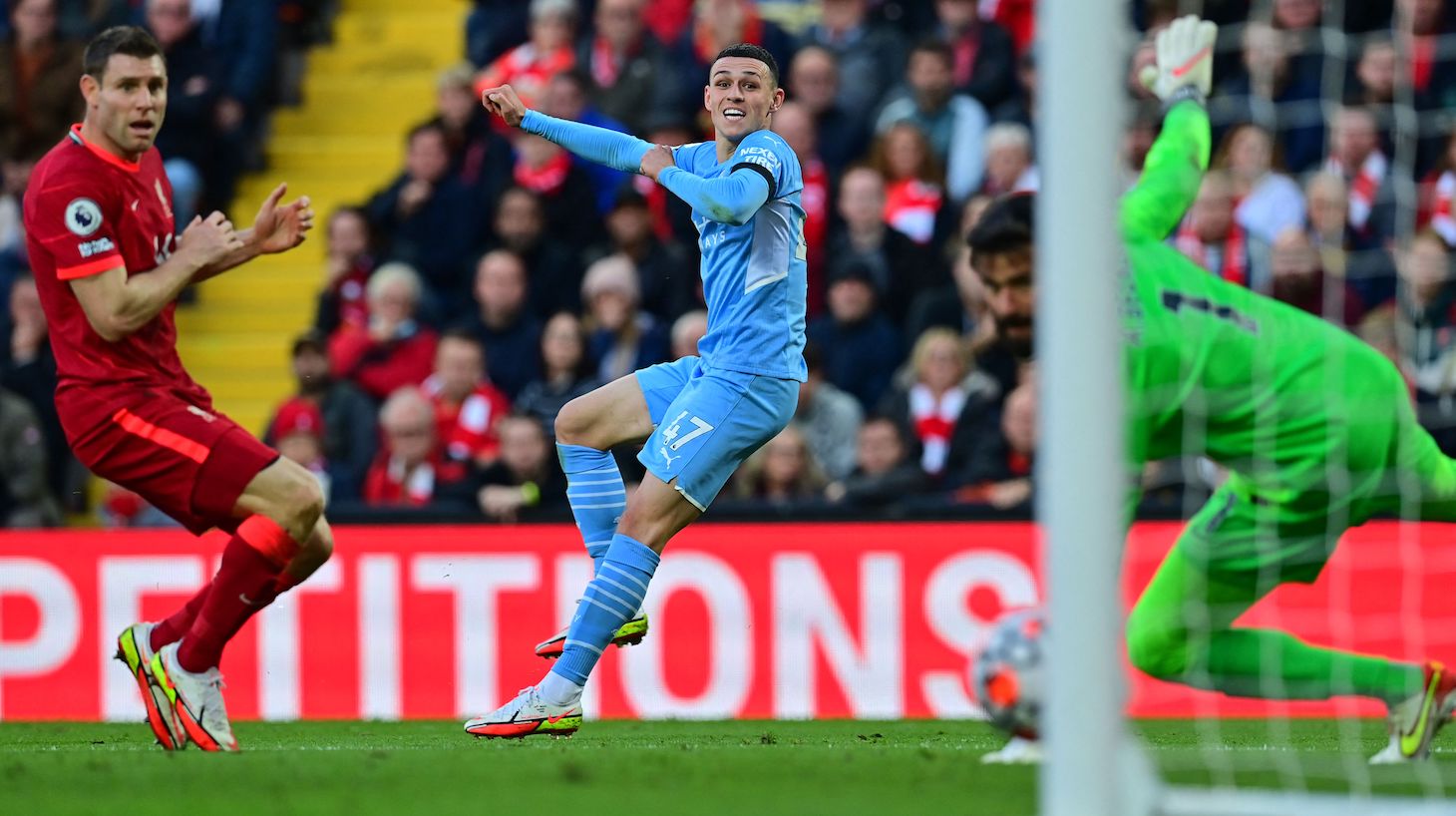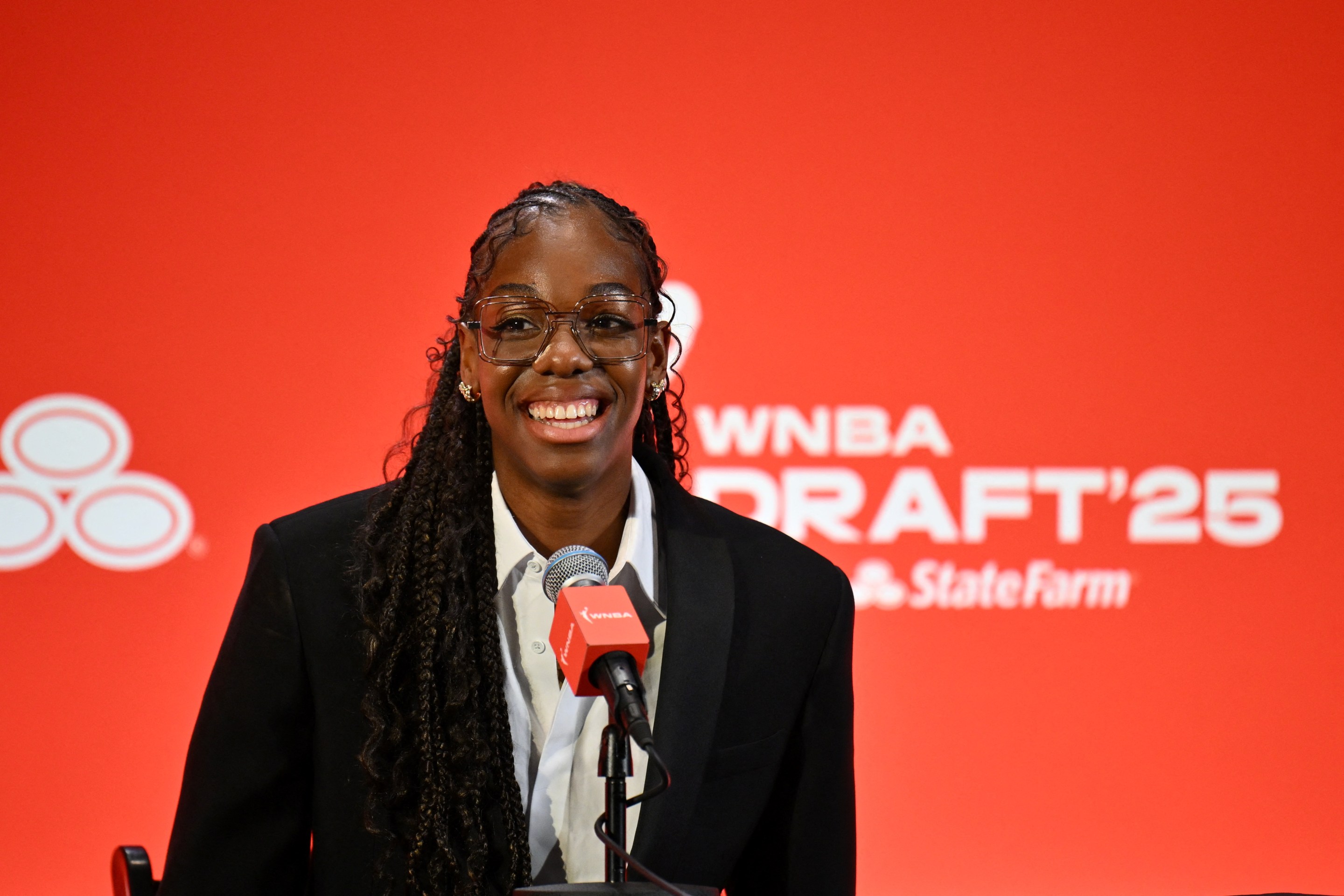"It's better to be lucky than good" may be a trite phrase in most respects, but it has a particular salience in soccer. The saying gets at something crucial to soccer's appeal, which is that in a single game of this low-scoring, intentionally difficult sport, anything can happen, anyone can win, and a fluky goal scored by an underdog against the run of play counts infinitely more than complete domination that doesn't get the ball into the net. Lucky is always capable of beating good, and good has to be really good to even keep even with luck. All of this could be seen on Sunday, when a very good Manchester City fought a very lucky Liverpool to a 2–2 draw, in a match that was the sport at its best.
In the Jürgen Klopp and Pep Guardiola eras, Liverpool vs. Man City has been the single best rivalry in soccer. Along with consistently pitting two of the very best teams in the world over the past five years, each matchup always promises to be a fascinating exhibition of stylistic similarities and contrasts at the sport's bleeding edge.
Both teams seek to impose their will on every opponent: City's will is strict, patterned, and elegant, while Liverpool's is anarchic, hectic, and violent. Both are masters at manipulating space: Liverpool looks for big, open windows of space and tries to shatter them before they close with the bulleting runs of its forwards, while City wants to squeeze space here so that the stretching creates holes there, and relies on its technical geniuses who can navigate near-vacuum conditions and then slip the ball through the holes. Both feature relentless defensive pressing: City presses as protection for its highly ordered attacking possessions, winning the ball back after losing it and reseting its control, while Liverpool presses to create attacks, winning the ball high and immediately sending it further forward to strike during those interstitial moments of chaos.
The principles of the pair's respective games are similar even if their approaches are completely different. By mastering those principles in their own way, the two have essentially become equals. And that equality is why it was so staggering to see just how dominant Manchester City was during the first half of Sunday's match.
You'd be hard-pressed to find a more thorough domination by one great team of another great team than the last half hour of Sunday's first half. City made Liverpool's infamously terrifying press look utterly impotent by concentrating play out wide—which seemed to take Liverpool by surprise, seeing as the narrow-sitting home team was set up to clog the center of the pitch where the visitors usually try to do their damage—and triggering well-timed runs, deep passes, and switches of play that sent the ball flying over the rushing Reds and onto the feet of open Citizens. City could get deep into Liverpool's half of the field at will, and constantly tortured Liverpool's overmatched right flank with interplay from Bernardo Silva, Phil Foden, and João Cancelo. When City lost the ball, they were always perfectly positioned to harry Liverpool's players into a panicked long ball that the Citizens almost invariably intercepted. And when Liverpool did string together a couple passes to maintain possession, City was content to sit a little deeper and let Liverpool have it, which robbed the Reds of the room to run without which their attacks can't really get going.
Mighty Liverpool mustered only one shot for the entirety of the first half, compared to City's seven. At times, it looked like Liverpool couldn't even get the ball out of their own half, let alone into City's net. City didn't create a ton of big chances during that stretch, but they were nevertheless in complete control, and it felt like only a matter of time before one of those solid chances they were regularly knitting together would eventually get over the line. If being good means anything, then in those first 45 minutes City was good, extravagantly so. Extravagantly good, but not lucky, and so the match hit the halfway point with the score even at 0–0.
It's not so much that Liverpool was lucky in the second half, though they were that also. After the break, Klopp made a couple tactical tweaks—giving right back James Milner better midfield protection down that wing, shoring up the team's short passing game to lure City's defense out of position rather than always trying to kick it long—that reestablished Liverpool's footing in the match. Not even 15 minutes into the second half, Mohammed Salah found himself at the edge of the kind of open spaces City had previously done so well to deny him, and after flipping the ball past Cancelo he flew into that space, played a ball that put Sadio Mané into even more space in City's penalty box, and watched as Mané gave Liverpool the lead. A little while later, after Foden had gotten City back on level terms, Salah repeated the feat, this time doing even more jinking to burst into space, then jinking some more to inch further into space, and finally smacking a rocket into the far side of the goal for an otherworldly goal:
Neither of Liverpool's two scoring plays were lucky, per se. Those plays are the kind Liverpool expressly attempts to create, for players whose very greatness is found in their ruthlessness in those situations. However, luck does lend its hand to every goal, and it's always better to score than to be good, and especially to be good at scoring. That too is one of those similarities and contrasts between Liverpool and Man City. Both score goals at an uncanny clip; Liverpool does it by having a couple players who are great at scoring, while City does it with a system designed to create so many chances that eventually its players who are capable of, but not necessarily great at, scoring will do so. If scoring is inherently lucky (putting aside the stats dummies' argument that finishing ability isn't real, or at least not very prevalent), then Liverpool is built around its luckiest couple players, while City is built around generating lots and lots of opportunities for luck to go their way. (If only Levy would've let Harry Kane leave...) Two different visions of luck, and two different ways of being good.
There was an enormous moment of honest-to-goodness luck, though, and it came moments before Salah's breathtaking goal, when Milner was unbelievably fortunate to escape a second yellow card for a blatant yellow card–worthy takedown. The sequence of events—Milner getting away with the tackle, Salah scoring almost immediately after, and Milner getting safely subbed off after that—was almost enough to ruin the entire match. Thankfully—luckily—Man City kept fighting and found another equalizer, this one from Kevin De Bruyne, which lessened some of the injustice of the ref's unforgivable mistake. By the time Fabinho had a late chance at a winner but saw his strike into an open goal mouth blocked by a perfect—and, yes, lucky—Rodri tackle, the 2–2 result once again felt more or less fair.
After the match, the process-obsessed Guardiola sounded ecstatic about the result because of the way his team played. Klopp was a little more disappointed, both in his team for getting battered in the first half and in the result for not going his way after it looked like Mané and Salah had won it, but he didn't seem too upset either way. It was, after all, an amazing game, full of tactical nuance and passion and emotion and intensity and a couple moments of genuine artistry—in sum, everything that makes these teams, the Premier League, and the sport as a whole so great. Both of these teams were and are good in their own ways, and the truly lucky ones are the ones who get to watch.






